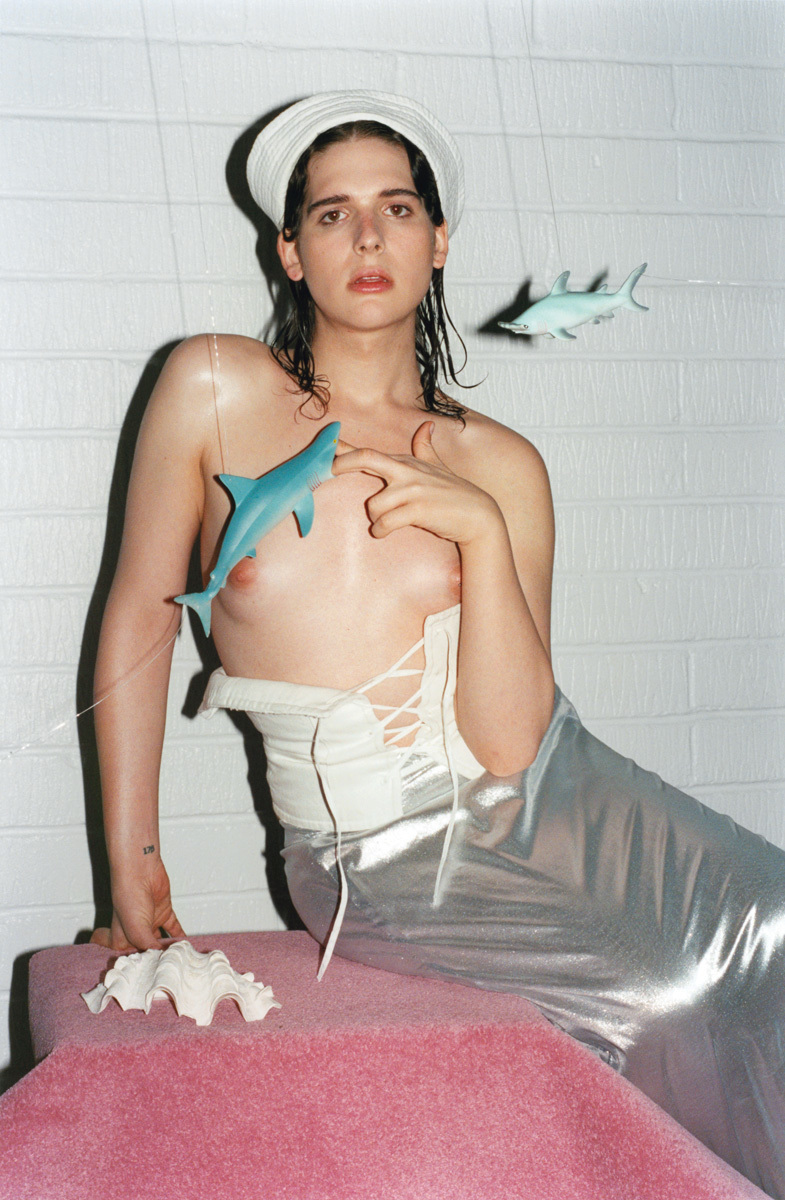“I’m 23, I don’t really know that much about life,” Hari Nef says. Of the many things you might expect the model, actor, and activist to say, this is not it. Born in Massachusetts (her mom’s still her hero), Hari came to New York to study theater at Columbia University. It was here, and in the welcoming environs of the city’s nightlife, that she felt comfortable to start her transition. From the moment she graduated Hari has been seized upon by the press, not just for her incredible beauty but also her erudition and, well, class. Hari was the first transgender model signed to IMG in May 2015. Since then she has appeared in i-D, been on the cover of Interview, and discussed what it means to be herself with American Vogue. She’s also a feted actor, having appeared in season two of hit show Transparent, where she played, in flashbacks, a young trans women in Berlin at the start of World War II. Now she’s on the cover of British Elle, enjoying the sort of mainstream coverage that leads to a beauty contract. Hari’s seemingly unstoppable. Her every tweet, Instagram, and public appearance spawning an opinion piece; the go-to girl when anyone needs a quote on the trans experience. For Hari, however, this omnipotence has come at a cost.
I mean, how could it not? Hari’s incredibly candid, and reflective; she gives you everything. “I’m in therapy, I struggle with anxiety, depressive impulses, and low self esteem…” she confesses. It’s these kinds of statements that have made Hari so loved by hundreds of thousands of young people, who follow her every move via social media. Who else talks so candidly? Certainly not the legion of blank models or relentlessly empowered pop stars. Honesty is what’s really empowering, but it’s also somewhat painful to lay yourself bare. “Sometimes it gets really overwhelming to be so seen and listened to. I’m sure anyone in the public eye will tell you that, but you know, this is a particularly difficult way for me to be seen at a time in my life where it’s particularly difficult for me to let people see me at all.”
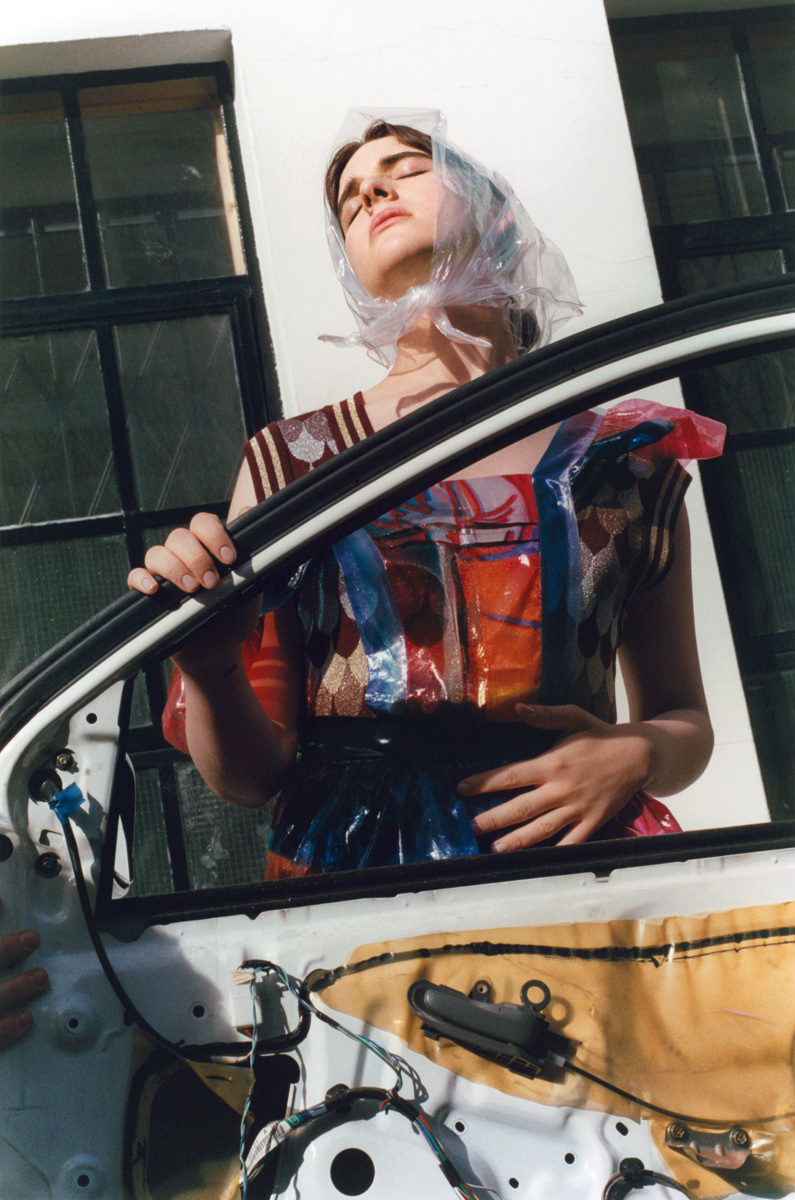
If this all sounds a bit depressing, it’s not. Hari is fascinating and knowing, and her delicate laugh punctuates conversation every time she says something that’s a little heavy. She knows the deal she’s made, to talk and in return be seen. She also has a way with words that makes even a dire statement seem poetic. “My struggle has been severe. I don’t think I’ve been candid enough about how severely hard the last year has been,” Hari says of her sudden ascent to fame. “Particularly in the demand from media outlets, clients, people at parties… That I have to be this little figurine in a music box, where you wind her up by booking her, talking to her, inviting her, whatever. And she has to spin around for an hour. Singing the song about her body, and her gender identity, and her story, and her hopes, and her dreams.”
Obviously you can’t keep up this kind of pretense forever, so inevitably she’s taken a step back. “I’m really proud that I’ve affiliated myself with the National Centre for Trans Equality,” the USA’s leading social justice advocacy organization working to affect change for transgender people, “and that I’m moving forward in the formal capacity of an activist,” she says. You only have to watch her TED talk to see that she’ll excel in the role. Devoid of her usual lol’s and Vetements hoodie, she makes a powerful case onstage for why femininity is a powerful and sometimes life-saving tool for the trans community — how “passing” as biologically female can be crucial to shield oneself from the violence directed at trans women every day. If anyone, she puts you in mind of a young Angelina Jolie, who so powerfully combines acting with activism. “But at the same time, I’ve withdrawn a little,” she continues. “Maybe that makes me a bad activist, maybe that makes me complacent, but I felt like there was a stretch of six months last year where I was just pumping discourse into the world. And half the time I didn’t know what I was saying,” which makes her erupt into her biggest, most wild laugh yet.

Part of the way Hari tells her story is through clothing. She’s recently become tight with Gucci’s Creative Director Alessandro Michele after walking in his fall/winter 16 menswear show, and her appearance at the CFDA Awards in a sea foam tulle Gucci number was exquisite. Hari says she gets shit online from people saying Michele’s only using her for what she smilingly calls a “cool gender moment,” but she’s quick to tell them where to go, with a story about how the designer was seemingly unaware of the storm her runway appearance would cause with the Italian press. Hari’s also closely linked with the younger New York fashion scene, designers like Eckhaus Latta, Hood by Air and Vejas, who recently won the LVMH special prize. “Clothes are always this thing that I use to tell stories about myself,” she says, warming to the theme of why New York has so much exciting young talent at the moment. “Stories that other people weren’t going to intuit about me, just purely on the basis of my body, or work, or cultural background. Not only have the clothes of these designers helped me to tell stories about myself, the people who make them are part of my story.”
There’s also her acting. After playing Gittel in series two of Amazon’s Transparent, Hari has been busy with castings, but can’t talk about any of it (you sense this might be a first for her). Despite allegedly stepping back from the soapbox, she can’t help but reach out to those that might be questioning their place in the world. When asked what keeps her strong, she says straight away, “The power of queer friendship and queer sisterhood — that’s one of the strongest forces in my life.” You only have to glance at Hari’s Instagram to know she’s the center of an international sisterhood. “Any queer or gender non-conforming person reading i-D who might feel lonely or isolated, I think the first thing you can do is try and seek out friends who are like you. Hop on the internet, look at the people who are talking about the same things you’re talking about.”
If they do, undoubtedly they’ll make their way to Hari’s rich online world. This is why she does what she does, why she’s Hari, who sings her song so that others might hear and not be lonely. “And every time my song would end, people would be like; thank you, I just learnt so much. Or, I didn’t kill myself. And then I thought to myself, okay, maybe it’s not such a bad thing being a figurine in a music box.”
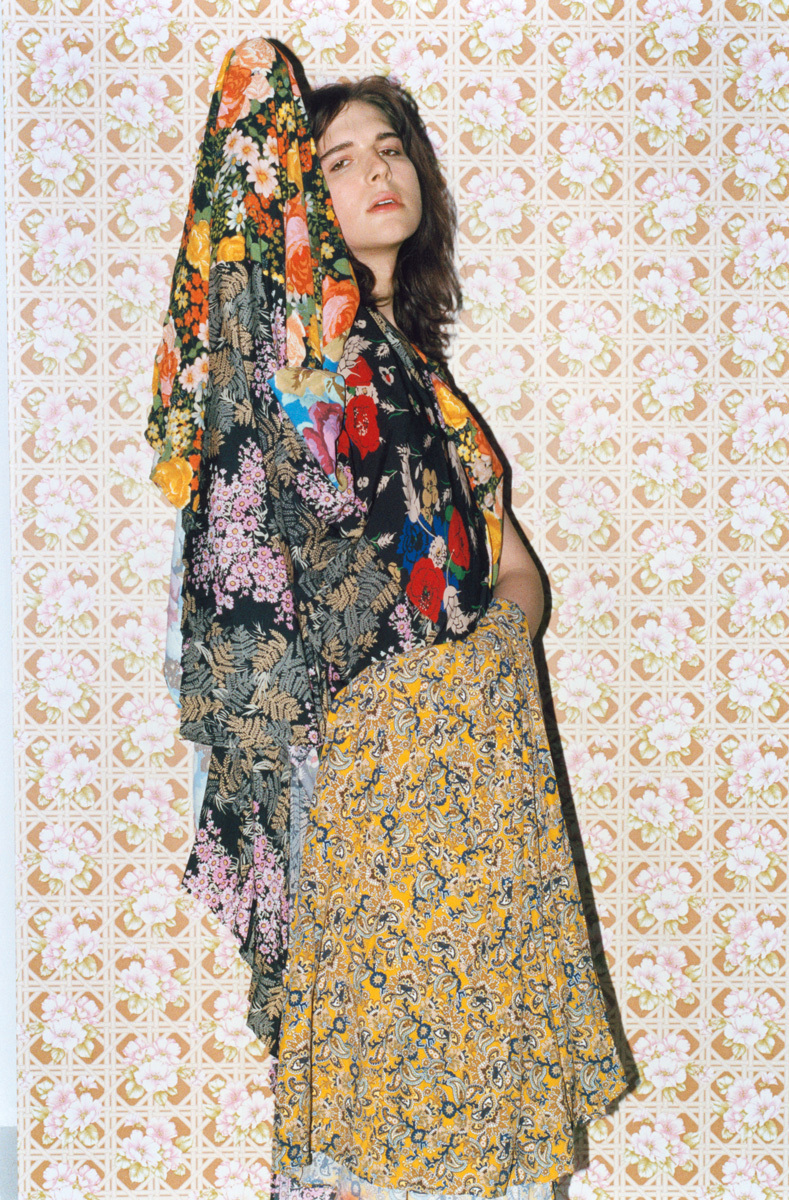

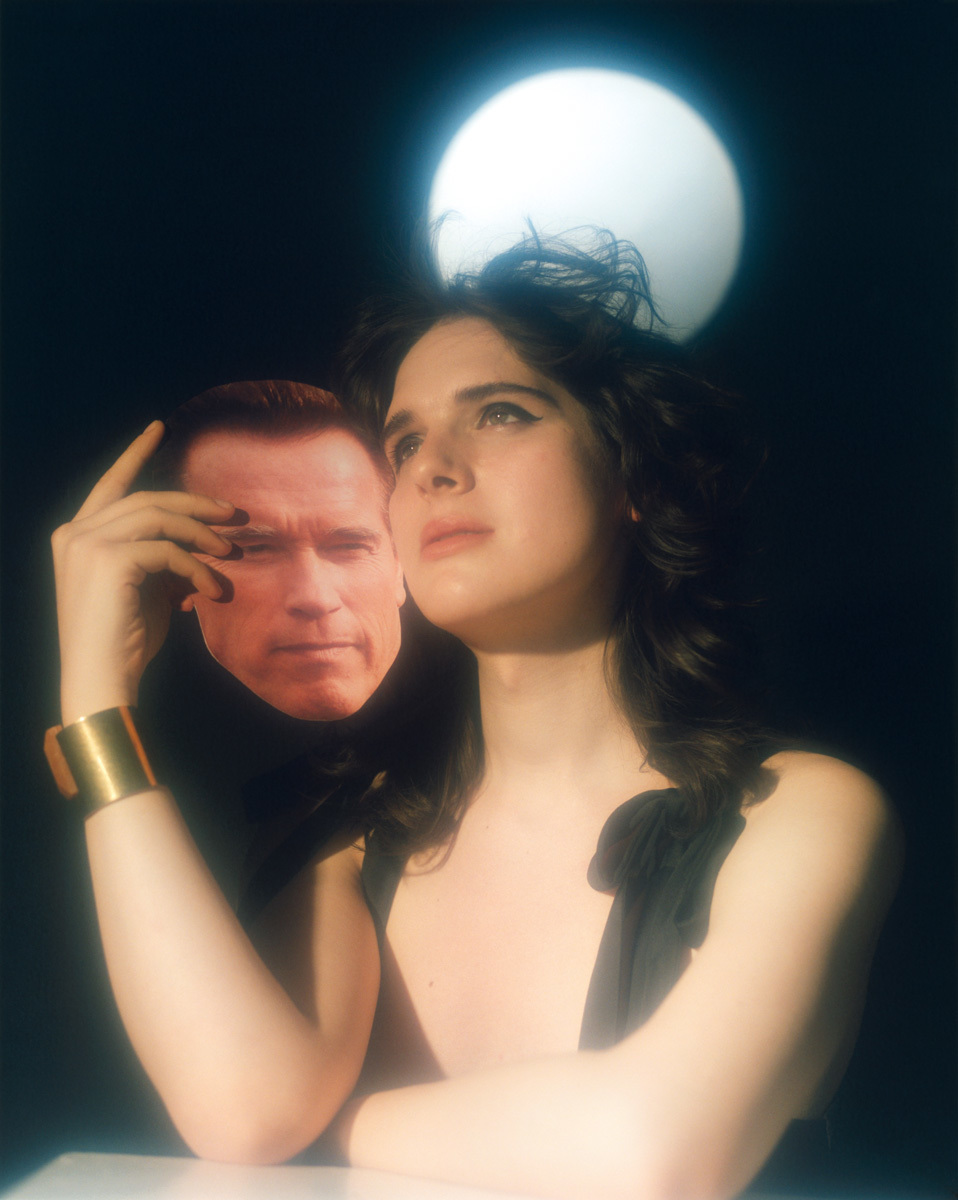
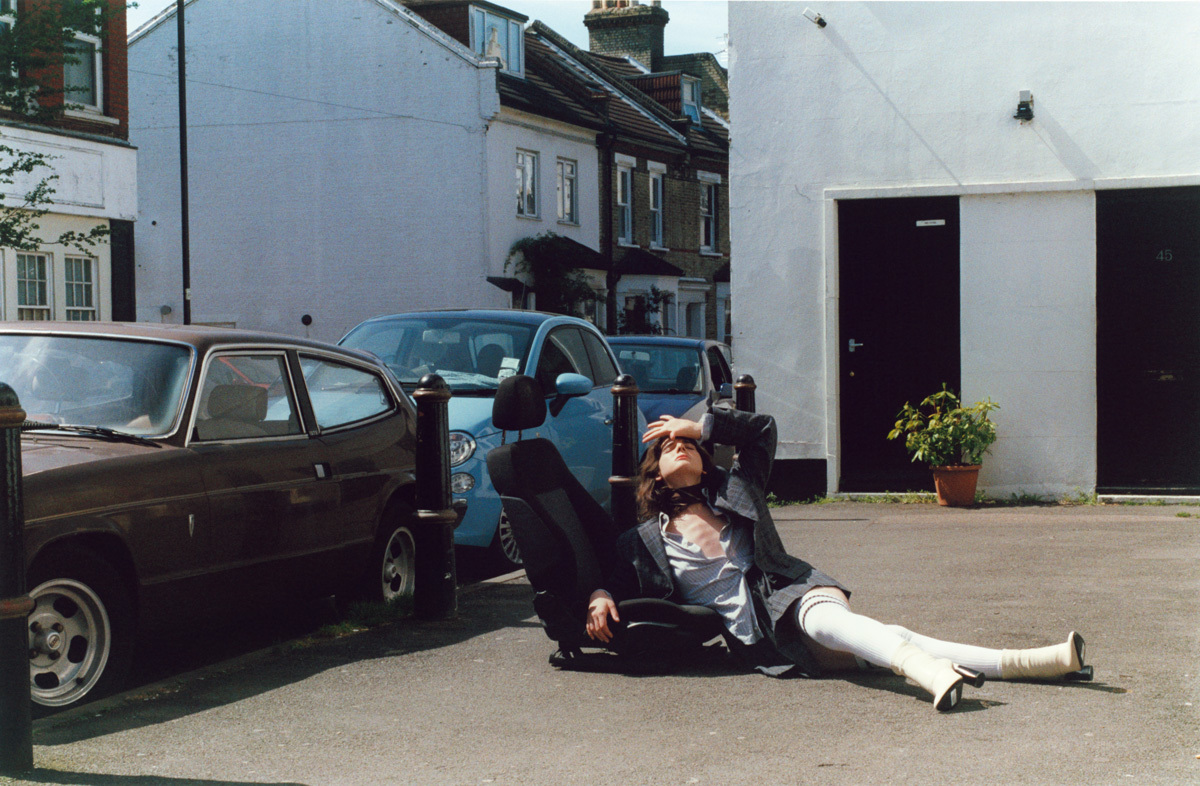
Credits
Photography Hanna Moon
Styling Caroline Newell
Hair Teiji Utsumi at Bryant Artists using Bumble and bumble. Makeup Lucy Burt at Bryant Artists using Chanel autumn/winter 16 and No.5. Body Cream. Set design Mariksa Lowri. Photography assistance Alessandro Tranchini. Styling assistance Philip Smith, Surgil Khan. Hair assistance Waka.
